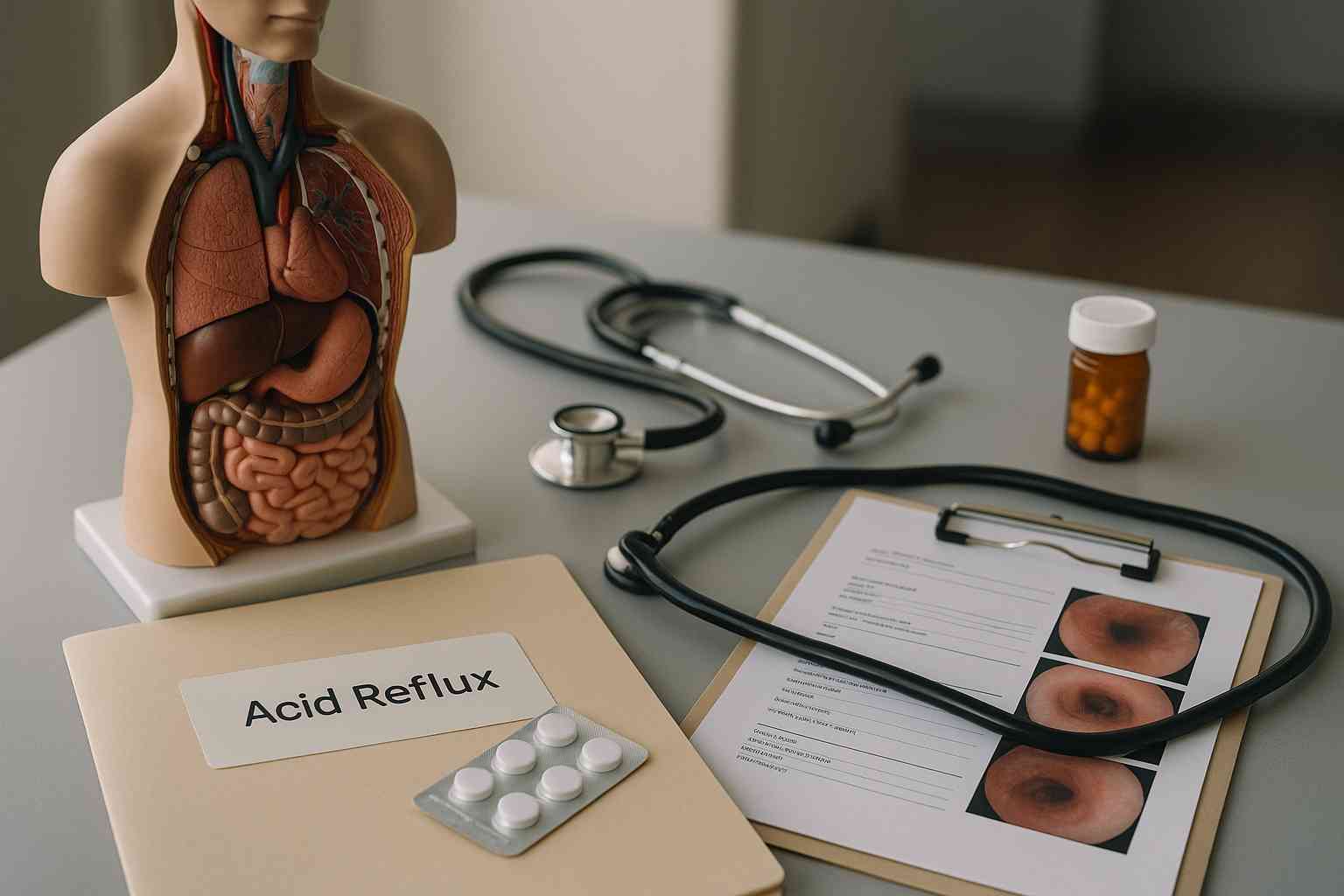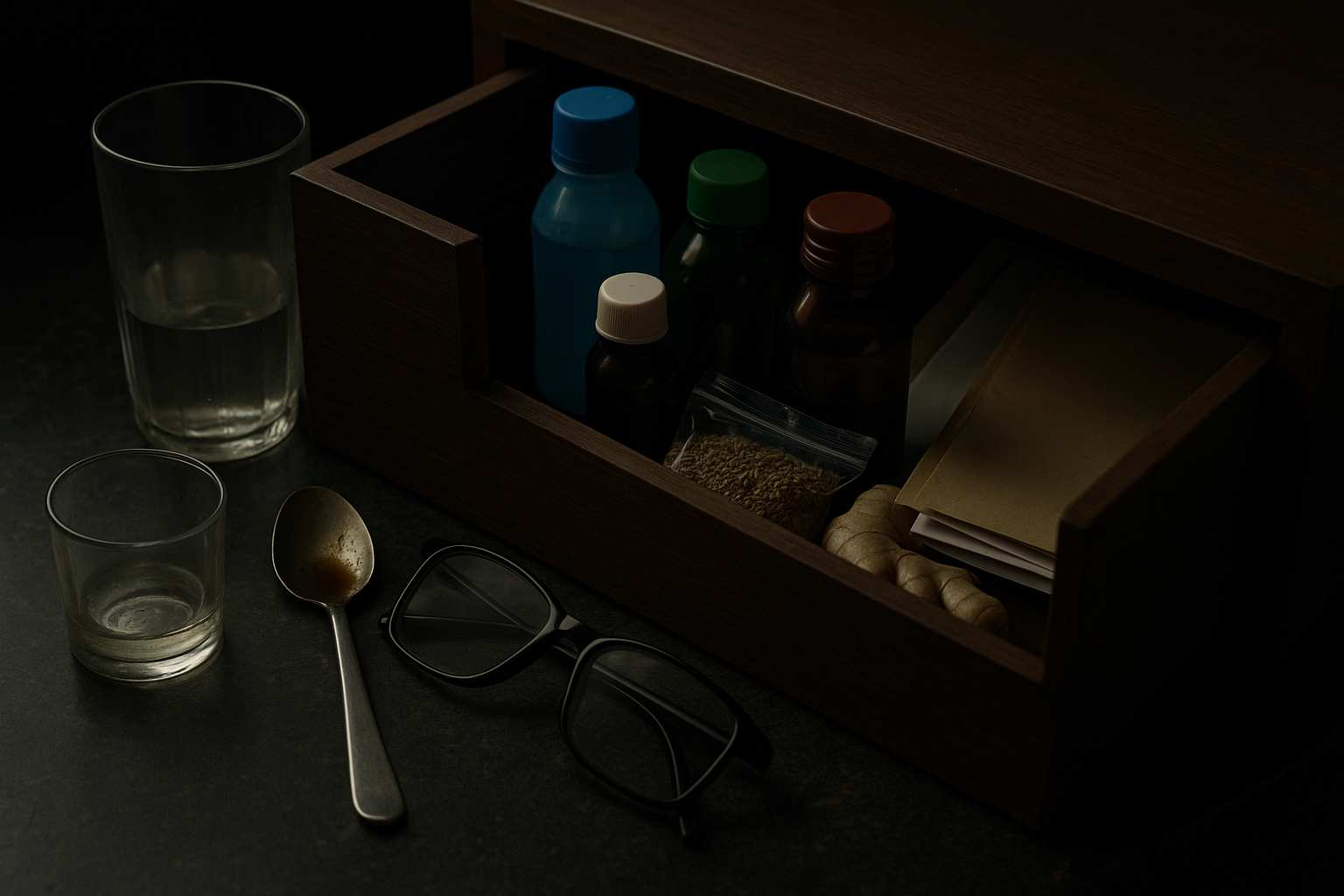Have you ever experienced a burning sensation in your chest after a heavy meal? Or did you feel a sour taste in your mouth while lying down? If so, you’re not alone, as millions of people deal with these uncomfortable symptoms. While these issues are often brushed off as “just acid reflux,” they could be pointing to something more persistent: GERD.
In this article, we’ll explain what acid reflux is, how it differs from GERD (Gastroesophageal Reflux Disease), and what you can do to manage or prevent both conditions. Understanding the difference can help you take better care of your digestive health and avoid long-term complications.
What Exactly Is Acid Reflux?
Acid reflux occurs when stomach acid travels back up into your esophagus—the tube that connects your mouth to your stomach. This happens when the lower esophageal sphincter (LES), a small muscle at the bottom of the esophagus, doesn’t close properly or opens too often. As a result, acid from the stomach can flow backward, causing discomfort.
Common Symptoms of Acid Reflux:
- A burning feeling in your chest (heartburn)
- Getting a bitter and sour taste in the mouth’s back
- Burping or hiccups after meals
- Mild chest discomfort
Acid reflux often occurs after overeating, lying down immediately after meals, or consuming trigger foods like spicy dishes, chocolate, caffeine, and fatty foods. Acid reflux is occasional and not a serious cause of concern.
What Is GERD?
GERD, or Gastroesophageal Reflux Disease, is a chronic and more severe form of acid reflux. It happens when acid reflux occurs more than twice a week or causes inflammation in the esophagus. Over time, this frequent exposure to stomach acid can be more dangerous. It can damage your esophageal lining, leading to more serious issues.
GERD is a long-term condition that often requires medical treatment, especially when lifestyle changes and over-the-counter medications are not enough.
GERD vs. Acid Reflux: What Sets Them Apart?
While the terms are sometimes used interchangeably, acid reflux and GERD are not the same. Here’s how they differ:
| Factor | Acid Reflux | GERD |
| Frequency | Occasional (a few times a month) | Frequent (2 or more times per week) |
| Severity | Mild to moderate | Moderate to severe |
| Impact on Daily Life | Minor discomfort | Can interfere with sleep, work, and eating |
| Esophageal Damage | Unlikely | More likely, especially over time |
| Symptoms | Heartburn and sour taste | Includes additional symptoms like chronic cough, sore throat, and swallowing difficulties |
Symptoms That Point Toward GERD
GERD can affect your quality of life if left unmanaged. Aside from the usual heartburn, people with GERD may experience other symptoms that go beyond digestion:
Signs You Might Have GERD:
- Heartburn more than twice a week
- Regurgitation of food or sour liquid
- Chest pain (not heart-related)
- Chronic cough or throat clearing
- Hoarseness or a raspy voice
- A constant lump-in-the-throat feeling
- Difficulty swallowing (dysphagia)
- Bad breath
If you regularly deal with more than one of these symptoms, it’s time to talk to your doctor. GERD is not just uncomfortable—it can lead to complications like esophagitis, esophageal ulcers, and even Barrett’s esophagus, a condition that increases the risk of esophageal cancer.
What Causes GERD?
GERD develops when the LES becomes weak or relaxes inappropriately. This dysfunction lets your stomach matter leak into the esophagus.
Common Risk Factors for GERD:
- Obesity: You know, Body Weight Impacts Acid Reflux. Extra weight puts pressure on your abdomen, hence pushing acid upward.
- Pregnancy: Hormonal changes and abdominal pressure during pregnancy increase GERD risk.
- Smoking: Excessive smoking weakens the LES and reduces saliva. This helps neutralize stomach acid, preventing digestion.
- Certain Foods: Fatty foods, caffeine, alcohol, chocolate, and spicy items can relax the LES.
- Medications: Drugs like aspirin, ibuprofen, sedatives, and some muscle relaxants may worsen GERD.
- Hiatal Hernia: This occurs when part of the stomach pushes into the chest cavity, making reflux more likely.
How to Manage Acid Reflux and GERD?
Thankfully, both acid reflux and GERD can often be managed. You should follow a strict routine in lifestyle changes, medications, else to manage Acid reflux and acidity, causing long-term issues.
Lifestyle Changes
Many people find relief by adopting healthy habits:
- As large meals put pressure on the LES, you should take in smaller meals.
- Trigger foods items such as spicy, acidic, and fatty foods, are common culprits.
- Don’t immediately lie down after eating. You should wait 2–3 hours before going to bed.
- Raise the head of your bed, or use a wedge pillow, or raise the bed frame.
- More body weight is not good. So, lose excess weight that will reduce abdominal pressure.
- If you reduce smoking, this will improve LES function. As a result, overall health will be cured.
Medications
There are several types of medications to control acid production and relieve symptoms:
- Antacids (like Tums, Rolaids): Quick, short-term relief
- H2 blockers (like ranitidine, famotidine): Reduce acid production
- Proton Pump Inhibitors (PPIs) (like omeprazole, esomeprazole): Long-term acid suppression
Always consult a healthcare provider before starting long-term medication.
Surgical Option
When medications and lifestyle changes don’t work, your doctor may recommend surgery. The most common procedure is fundoplication, where the top of the stomach is wrapped around the LES to strengthen it and prevent reflux.
Home Remedies and Natural Prevention Tips
In addition to traditional treatments, many people find relief using natural remedies and small lifestyle tweaks. Here are simple remedies to try:
- Chew gum: Increases saliva to help neutralize stomach acid
- Drink ginger tea: It helps reduce inflammation and improve digestion
- Avoid tight clothes: wearing tight clothes after a meal, especially around the waist, is uncomfortable.
- Stay upright after eating: Gravity helps keep stomach contents where they belong
- Track your triggers: Keep a food diary to see which items worsen your symptoms
Fast Relief with Gaviscon Antacid
For both acid reflux and GERD, quick relief can make a big difference, especially at night. Gaviscon Oral Suspension is a trusted over-the-counter option that forms a protective layer on top of your stomach contents, helping to prevent acid from backing up into your esophagus.
Why Gaviscon?
Here is how it’s better than other remedies:
- Works quickly and lasts for hours
- Especially helpful after meals or before bedtime
- Sugar-free and safe for most users
It can be an effective part of your overall reflux treatment plan. Be sure to check with your doctor if you have ongoing symptoms.
Conclusion
While acid reflux and GERD are closely related, they are not the same. Occasional acid reflux is common and usually harmless, but frequent symptoms can be a sign of GERD, a more serious and chronic condition. The key difference lies in frequency, severity, and long-term effects. Understanding what you’re dealing with is the first step toward relief. Don’t ignore frequent discomfort, your body might be telling you it needs help. Talk to your healthcare provider, stay aware of your triggers, and make small daily changes to support your digestive health.
Disclaimer: This content is just for general information and advice. It’s not meant to replace a doctor’s opinion. Always talk to a medical expert or your own doctor for proper guidance. AcidRefluxindia is not responsible for how you use this information.










